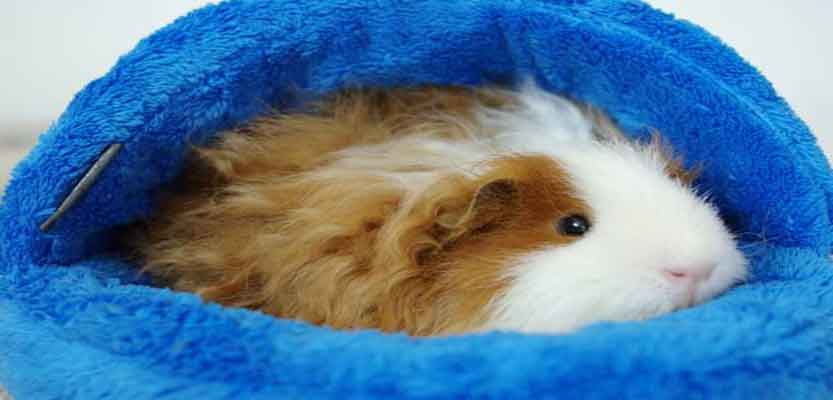
Guinea pigs are extremely sensitive to temperature fluctuations. You must plan ahead and make preparations to keep your pet comfortable and healthy during the winter months. It is always necessary to create homeostatic conditions to aid in their adaptation to changing weather conditions.
The optimal temperature range for their survival is between 18 and 25 degrees Celsius. When the temperature drops, it is essential to keep them warm. The following is a helpful guide to keeping your Guinea pig warm.
Place the cage in a room with minimal wind and humidity.
To prevent your pet from catching a cold, place the Guinea pig in a room that has few drafts and winds and is not overly humid.
It is not recommended to place the cage in the bathroom, laundry room, or porch, where there is a constant supply of wind and water.
Include additional bedding material in the hutch
The addition of additional bedding material to the cage provides additional cushioning and warmth for the Guinea pig. Wood shavings, fleece, and newspaper shreds should always be added to the cage.
As the temperature drops, this can function as a shock absorber and a faux burrow to keep your pet warm. Always maintain their warmth. One can prevent the spread of the common cold by using dry bedding.
Invest in a heating pad for rodents.
Consider purchasing a rodent heating pad for your Guinea pig. These common plug-ins and heatable devices can help you regulate the temperature so that your Guinea pig is comfortable.
To keep your pet warm throughout the night, a heat pad that can be heated in the microwave has a lengthy heat retention time.
Don’t repeatedly open and close doors
The opening and closing of doors may allow cold air to enter through the vents and cause the temperature to drop.
Attempt to limit your Guinea pig’s exposure to windows and other openings during the winter to prevent illness. Additionally, use towels and air draft blockers to prevent any further ventilation.
Place your Guinea pig in the heart of your house.
In many homes, the outer rooms are considerably colder and lack the necessary warmth for a Guinea pig to thrive.
Consider placing a cage in a central, well-heated area of your home, as opposed to a hallway or an unused space.
Provide daily fresh hay, vegetables, and water for your Guinea pig.
Guinea pigs must increase their basal metabolic rate to increase heat production in order to maintain body homeostasis.
It is essential to provide them with fresh hay, vegetables, and water to meet all of their metabolic needs. Ensure daily water replacement and keep in mind that the water should not be too hot.
Invest in a hutch with proper insulation
Consider purchasing a well-insulated hutch if you want to keep your Guinea Pig outside on your porch or in your garden all year if you cannot keep it inside your home.
A properly insulated cage will prevent air from entering through the vents, which may prevent your Guinea pigs from becoming ill.
Raise the hutch’s height.
A properly constructed coop will prevent heat loss and moisture buildup. Try adding additional legs to the furniture and elevating it off the ground.
There is minimal contact with the ground, which prevents the transfer of heat and cold to the hutch’s wood as a result of atmospheric conditions, according to the science behind increasing the hutch’s height.
Keep the hutch always dry.
It is essential to ensure that the hutch is not damp or contains an excessive amount of moisture, as this can result in heat loss through the wood.
Additionally, frequently replace wet bedding to prevent the risk of catching a cold.
Create a space for your Guinea pigs to run around.
Even when the temperature drops, your Guinea pig must be able to move around adequately.
Provide your Guinea pig with a well-insulated space for exercise. Exercise will also aid in a mechanism that generates heat, which is crucial during the cold winter months.
Beware of predators
Winter is prime hunting season for many predators, and if you place your hutch outdoors, it may attract predators that will attack your Guinea pigs. Always ensure the safety of the material and the durability of the furniture.
Thus, winter can be difficult for your Guinea pigs, and you must be proactive to ensure their health throughout the season. Invest in quality hutches, bedding, and temperature-monitoring thermometers to ensure the safety of your rabbits. When adequate preparations are made prior to the winter season, you can anticipate a trouble-free winter.
